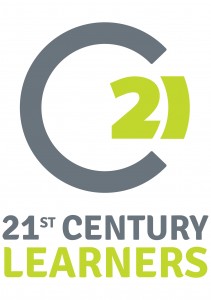Is our education system ethical?
 I know a little boy (quite well as it goes) who cries as he lines up to go into school each morning. His class is loud and unruly and his teacher is struggling to ‘crack them’. I think they are disengaged – struggling to see the relevance of the majority of what they are asked to do. But I expect they will be cracked in the end – assimilated into a system that will push them through a sequence of graduated steps to a distant goal of success in paper-based examinations, like so many action figures on a production line. They will be assessed and ‘tracked’; ‘interventions’ will be put in place for those who do not progress along the conveyor belt at the expected rate. And when they reach the end, having been made compliant by the system, they may well be no more adaptable to the world that waits for them than those action figures would be. Designing tough, paper-based examinations to ‘sort the wheat from the chaff’ and then allowing the demands of these to drive the agenda for thirteen years of schooling seems to be a questionable approach to preparing our children for their futures.
I know a little boy (quite well as it goes) who cries as he lines up to go into school each morning. His class is loud and unruly and his teacher is struggling to ‘crack them’. I think they are disengaged – struggling to see the relevance of the majority of what they are asked to do. But I expect they will be cracked in the end – assimilated into a system that will push them through a sequence of graduated steps to a distant goal of success in paper-based examinations, like so many action figures on a production line. They will be assessed and ‘tracked’; ‘interventions’ will be put in place for those who do not progress along the conveyor belt at the expected rate. And when they reach the end, having been made compliant by the system, they may well be no more adaptable to the world that waits for them than those action figures would be. Designing tough, paper-based examinations to ‘sort the wheat from the chaff’ and then allowing the demands of these to drive the agenda for thirteen years of schooling seems to be a questionable approach to preparing our children for their futures.
But back to the little boy. He remains distressed; he dislikes classroom conflict – he wants everybody to be happy. Somewhere inside him, fast receding, is the belief that everybody should be happy and that each day should be a shining new opportunity for joyful play and discovery in an atmosphere of mutual respect and caring. The naivety of childhood, I suppose. But here’s a thought; do we have the right to take this little boy and his class and assimilate them into a system that has little regard for their childlike qualities? Is our education system really ethical? Shouldn’t childhood be filled with joyful play and discovery? By the age of eleven isn’t it more important that a child has made connections with the world s/he is a part of than that s/he has been made ‘secondary ready’? If we do need institutions called schools, shouldn’t their primary concern be to enhance the experience of childhood and to help children to construct their identity, to make their beginnings and to find their voice in the ‘conversation of mankind’?
But what of standards and discipline – what of rigour? These children only get one chance! Every second counts! If they are not learning from the moment they walk through the door we are letting them down! (Ironic this last one, as many of them learn more on the other side of the door). We fill our schools with rhetoric like this, and steel ourselves to devote our lives to the cause of ‘progress’. But is there a chance that we are misguided?
These thoughts are not intended to demoralise teachers. They are the people I admire the most; they believe in children and work tirelessly to give them a better future. I know they will do their best for my little boy. But they do this within the confines of a system that limits them, and subjects them to unbearable scrutiny, constantly trying to measure their performance in perverse ways that challenge the authenticity of what they do. It’s not just children who sometimes arrive at school with a tear in their eye…
I wonder what would happen if we stopped taking ourselves quite so seriously and let a little childlike joy creep back into our hearts. What if we relaxed our grip on the reins ever so slightly and made room for children (not to mention teachers) to have a little control? The curiosity-fuelled joy of discovery sounds like a pretty good starting point for learning (perhaps it could even be a better source of intrinsic motivation than the fear of finding out what decile you are in nationally?). Children aren’t naturally afraid of challenge – in the right environment they thrive on it – and they are crying out to be allowed to make real contributions to their communities and to have their voices heard instead of being locked away in an institution.
 What would happen if we got out of their way and helped them to construct the knowledge, understandings, skills and ‘habits of mind’ needed to do things of real value? What if we work alongside them – challenge and stretch them? This is not to exclude academic rigour, Mr Gove. We can still engage with ‘the best that has been thought and said’, but the key word here is ‘engage’ – we need to give Shakespeare and algebra a purpose in the lives of our children.
What would happen if we got out of their way and helped them to construct the knowledge, understandings, skills and ‘habits of mind’ needed to do things of real value? What if we work alongside them – challenge and stretch them? This is not to exclude academic rigour, Mr Gove. We can still engage with ‘the best that has been thought and said’, but the key word here is ‘engage’ – we need to give Shakespeare and algebra a purpose in the lives of our children.
So let’s have the courage to think critically and radically about our education system. Let’s not start with examinations, or Ofsted or the national curriculum. Let’s start with learning and with living and with the joy of childhood. The rest will follow, and the tears may stop for children and teachers alike.


